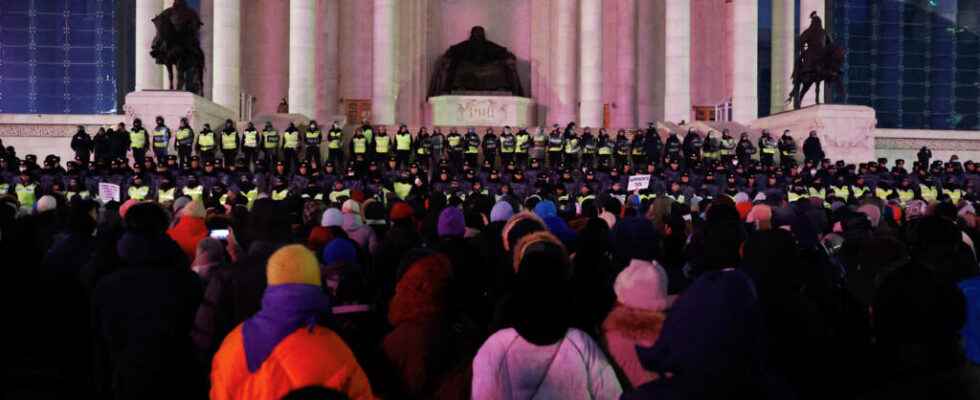Thousands of demonstrators gathered Sunday and Monday in Ulaanbaatar, the Mongolian capital, to protest in freezing cold, over suspicions of corruption in the coal industry and soaring inflation. Several people were arrested on Monday after trying to storm the government palace. After calls for calm from the authorities, only a few dozen demonstrators protested on Tuesday, December 6.
Calm seems to have returned to the capital, Ulaanbaatar, where only a few dozen demonstrators protested on Tuesday. The day before, they were several thousand to shout their anger against the corrupt civil servants, the outbreak of inflation (+15.2%) and to demand the impeachment of Parliament.
This protest movement has been fueled by revelations from whistleblowers that billions of dollars from coal mining have been stolen by industry-linked lawmakers. Details from Sukhgerel Dugersuren of the NGO Oyu Tolgoï Watch, at the microphone of Jelena Tomitchfrom the RFI international service.
I think the scandal comes from the fact that a group of individuals got rich thanks to this fraud. According to unconfirmed information, the figures on the quantity of coal destined for export between China and Mongolia do not match. Coal is one of the main export items and one of the country’s main sources of income. That’s why it’s a serious problem. Yesterday, large military forces were deployed in the streets and the demonstrators were dispersed, but Parliament decided not to declare a state of emergency. The Prime Minister further promised that all issues would be settled. He asked the people to trust him and asked for permission to take drastic measures to put an end to this scandal.”
In mid-November, the Mongolian anti-corruption authority announced that more than 30 officials, including the CEO of state-owned coal mining company Erdenes Tavan Tolgoi, were under investigation for embezzlement.
VIDEO: Thousands brave freezing temperatures in Mongolia’s capital to protest alleged corruption in the country’s coal industry and soaring inflation. pic.twitter.com/p3Csa3jYpf
— AFP News Agency (@AFP) December 6, 2022
The lawmakers involved allegedly leveraged ownership of coal mines and companies transporting the fossil fuel to China to make illegal profits.
Currently, 86% of Mongolia’s total exports, all goods combined, go to China. Half of these Chinese purchases are coal
The landlocked country has struggled with political instability since its first democratic constitution in 1992, when it emerged from Soviet orbit.
► To read also Mongolia: a democracy at the polls
